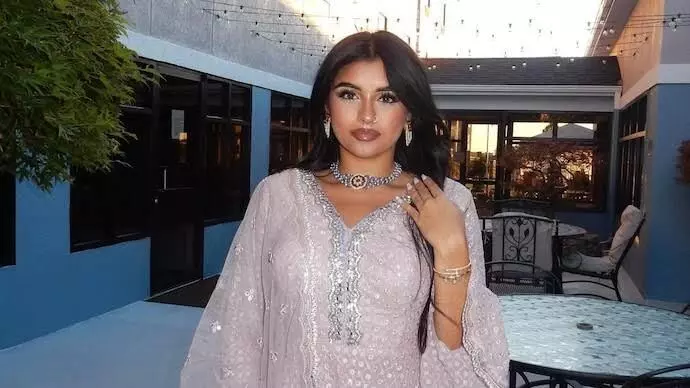Sushmita Sen to Dhruvi Patel: Why are beauty pageants in India losing sheen?
Miss India Worldwide has retained its prestige on the global stage, beauty pageants within India have seen a sharp decline
By Anoushka Caroline Williams
Miss India Worldwide: Dhruvi Patel
Hyderabad: Dhruvi Patel, a Computer Information System student from the USA, has been crowned Miss India Worldwide 2024.
The event, held in Edison, New Jersey, is recognized as the longest-running Indian beauty pageant outside of India, organized by the India Festival Committee (IFC). The pageant draws contestants from across the globe, including India and the Indian diaspora.
Participants and Winners
In the main competition, Lisa Abdoelhak from Suriname was declared the first runner-up, while Malvika Sharma from the Netherlands took the second runner-up position.
In the Mrs. category, SuAnn Mouttet from Trinidad and Tobago was crowned the winner, with Sneha Nambiar and Pawandip Kaur from the UK as the first and second runners-up, respectively. Sierra Suret from Guadeloupe claimed the Miss Teen India Worldwide crown, with Shreya Singh from the Netherlands and Shradha Tedjoe from Suriname named runners-up.
Beauty Pageants in India: A Diminished Importance
While Miss India Worldwide has retained its prestige on the global stage, beauty pageants within India have seen a sharp decline in relevance. The sheer number of pageants across the country has diluted the overall impact of these events.
Sociologist Dr. Amrita Kumar, a professor at the University of Delhi, explains, “In India today, beauty pageants are no longer the rare and coveted platforms they once were. The over-saturation of local and regional contests has led to a general disinterest. We are seeing fewer women turning to these competitions as their primary route to success.”
Experts believe that a growing sense of national confidence has lessened India’s need for international recognition through beauty contests. "India no longer requires beauty queens to validate its global standing," says Dr. Kumar. “In the 90s, a Miss Universe or Miss World title was seen as a big win for India’s cultural identity. Today, the country’s achievements in various fields, like technology and sports, have overtaken the importance of such wins.”
The Origins of Beauty Pageants
Beauty pageants have long been a way for women to gain visibility on the global stage. The Miss India Worldwide pageant, first organized by Dharmatma Saran in New York City, was created to highlight the talents and beauty of Indian women globally. Back in the early 1990s, when Sushmita Sen and Aishwarya Rai won their respective Miss Universe and Miss World titles, India had only just begun its economic liberalization.
“At that time, winning a beauty contest was one of the few ways for women to gain international fame and recognition,” says women’s rights researcher Rashmi Sharma. “There were fewer avenues for women to break into the global entertainment industry.” However, as India’s economy expanded and other opportunities emerged, the significance of pageants diminished. Today, most people in India would struggle to name the current Miss India, reflecting the declining impact of these events.
Changing Attitudes Toward Beauty Pageants
Feminist objections to beauty pageants have been growing for decades. Critiques focus on the superficiality of judging women based on their appearance, and how these contests reinforce outdated ideals of femininity.
Dr. Sunita Rao, a feminist activist, notes, “Pageants like these are vestiges of a past where women’s worth was tied to their looks. While they still provide a platform for some, the broader cultural conversation has shifted towards valuing women for their skills and achievements, rather than their appearance.” While pageants remain popular in parts of the world, especially in South America, they have seen a significant decline in importance in countries like India.
Looking Ahead
Dhruvi Patel’s victory at Miss India Worldwide 2024 revives attention toward Indian beauty pageants on a global scale. Despite waning interest in India, the pageant remains a significant platform for individuals like Patel. After winning the crown, Patel expressed her aspirations of becoming a Bollywood actor and a UNICEF Ambassador, showing that even as pageants decline in relevance, they can still open doors for ambitious women.
As pageants evolve, so too must the roles they play in shaping societal attitudes. As Rao concludes, “While their importance has waned, beauty pageants still hold cultural value for many. They’re not going away anytime soon, but their role in shaping identity has shifted dramatically.”